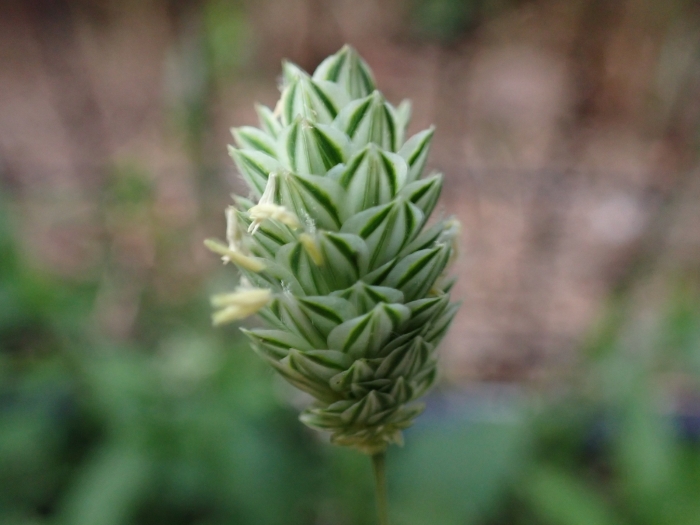Canary Grass
(Phalaris canariensis)
Canary Grass (Phalaris canariensis)
/
/

Sus scrofa
CC BY 4.0
Image By:
Sus scrofa
Recorded By:
Copyright:
CC BY 4.0
Copyright Notice:
Photo by: Sus scrofa | License Type: CC BY 4.0 | License URL: http://creativecommons.org/licenses/by/4.0/ | Rights Holder: Sus scrofa | Publisher: iNaturalist | Date Created: 2023-06-27T18:28:13-07:00 |
























Estimated Native Range
Summary
Phalaris canariensis, commonly known as canary grass, is a large, coarse annual or perennial grass native to the Mediterranean region, including parts of Europe, North Africa, and the Middle East. It is also found in riparian zones, cultivated fields, and disturbed areas. Typically, it reaches a height of 2 to 6 feet tall, with erect, hairless stems. The plant is characterized by its prominent membranous ligules and flat, harsh leaf blades. During its flowering season from May to mid-June or August, it produces compact panicles ranging from 3 to 16 inches long with dense clusters of flowers that are not particularly showy. The seeds are shiny brown and are primarily harvested for bird food, often mixed with rapeseed.
Canary grass is valued for its use in birdseed mixtures and is grown commercially for this purpose. It is also used for erosion control and as an ornamental grass in some settings, though its potential invasiveness should be considered. In cultivation, it prefers full sun to part shade and can tolerate a wide range of soil types, provided they are well-drained. It has moderate water requirements and can be drought-resistant once established. However, Phalaris canariensis can be potentially invasive in some regions, outcompeting native plants and altering habitats. It is important to check local regulations before planting canary grass outside its native range to ensure it is not a listed invasive species.CC BY-SA 4.0
Canary grass is valued for its use in birdseed mixtures and is grown commercially for this purpose. It is also used for erosion control and as an ornamental grass in some settings, though its potential invasiveness should be considered. In cultivation, it prefers full sun to part shade and can tolerate a wide range of soil types, provided they are well-drained. It has moderate water requirements and can be drought-resistant once established. However, Phalaris canariensis can be potentially invasive in some regions, outcompeting native plants and altering habitats. It is important to check local regulations before planting canary grass outside its native range to ensure it is not a listed invasive species.CC BY-SA 4.0
Plant Description
- Plant Type: Grass
- Height: 1.5-2.5 feet
- Width: 1.5-2.5 feet
- Growth Rate: Rapid
- Flower Color: N/A
- Flowering Season: Summer
- Leaf Retention:
Growth Requirements
- Sun: Full Sun
- Water: Medium
- Drainage: Medium, Fast
Common Uses
Bird Garden, Low Maintenance
Natural Habitat
Native to the Mediterranean region, riparian zones, cultivated fields, and disturbed areas
Other Names
Common Names: Canary Grass, Birdseed Grass, Canaryseed
Scientific Names: , Phalaris canariensis, Phalaris aquatica, Phalaris aquatica, Phalaris avicularis, Phalaris canariensis f. bracteata, Phalaris canariensis f. colorata, Phalaris canariensis f. vivipara, Phalaris canariensis subsp. bracteata, Phalaris canariensis subsp. colorata
GBIF Accepted Name: